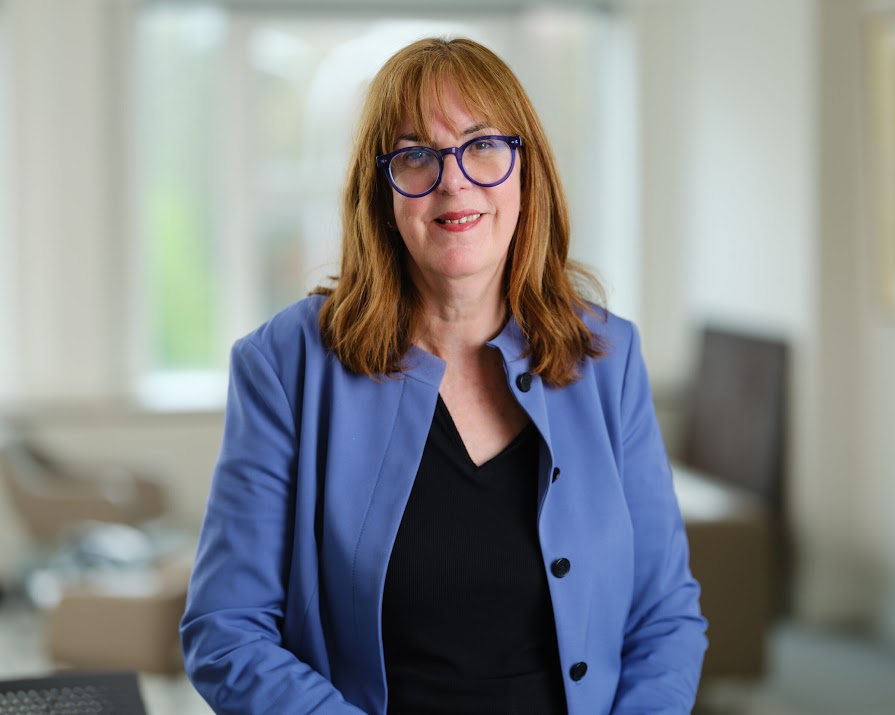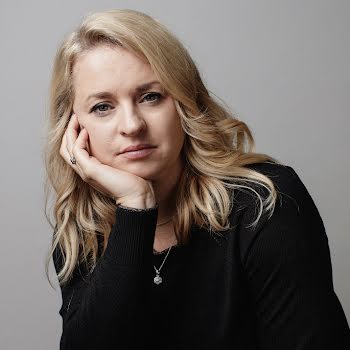Sponsored
Long-Term Investing: Taking money matters into your own hands
Sponsored By

By Katie Byrne
28th Oct 2023
28th Oct 2023
Sponsored By

Marina Giblin, Director, Wealth Management at Key Capital
Curious about investing but don’t know where to start? Marina Giblin, Director, Wealth Management at Key Capital Private, explains how to devise a financial plan and grow your wealth.
While more women are investing than ever before, female investors still face a number of barriers. Valuing flexibility in their careers, choosing to take time out of the workforce to care for family and spending longer in retirement, combined with differing risk tolerances, can result in women having less money overall to meet their financial goals.
One of the ways to offset these challenges and address the gap is with a sound investment approach, which should include building a solid, long-term investing strategy. The power of long-term investing is that it grows wealth over time to help boost your income and protect you from inflation.
“Women tend to be more risk-averse than men,” explains Marina Giblin, Director, Wealth Management at Key Capital Private, “and while this inertia can at times benefit them in volatile markets it can also be a disadvantage if women don’t make the decision to invest in the first place.
Advertisement
“All the elements are there for women to be great investors; they’re good savers, good planners and they’re consistent and resilient, but they struggle to bring it from concept to making the final decision to implement an investment strategy. This decision paralysis lies at the heart of it.”
Why are financial decisions so hard? For a number of good reasons – each of which are why the industry is regulated to protect consumers in the first place: the significant consequences of financial decisions, the complexity and range of products that are purchased infrequently, and the time horizon of products being locked-up leave little time to rectify a loss on maturity.
“All the elements are there for women to be great investors; they’re good savers, good planners and they’re consistent and resilient."
They also require us to assess risk and uncertainty and there is now a growing recognition that emotions, biases and psychological experiences can have an adverse effect on our financial decisions. For instance, people have a tendency to take on too much debt. Other barriers to investing can be worry about losing some or all of your money, lack of knowledge about investing, not believing you have enough to invest and fear of it being locked up for a long time, all of which need to be considered.
Marina and the team at Key Capital Private help clients with their financial decisions by empowering and educating them on their investment journey. Marina works primarily with high net worth clients but her experience and insights will be useful to all who are interested in taking matters into their own hands to take charge and become financially aware.
“In our experience there are three areas that we as a business know from dealing with clients – attitude to risk, diversification and thinking long-term. These apply regardless of the size of wealth or the complexity of the portfolios and are critically important when it comes to investing and building wealth.” says Marina.
Advertisement
Whether you are investing with an advisor or teaching yourself, Marina shares her key insights for women investing for the first time.

1. Set time aside
It’s important to carve out time to devise an investment strategy and set personal financial goals. Block this time off on your calendar as you would a work meeting and use it to establish your objectives, review your finances, determine the time horizon (i.e. the time you expect to hold the investment) and familiarise yourself with different asset classes. If you’re investing with a partner, start a conversation about what you want to achieve and make sure your financial goals are aligned.
Start early and start young. The earlier you start, the more time you have for your investments to grow and even small steps in the right direction are better than no action. “It’s never too late to start investing,” Marina says, whose clients are generally between the ages of 40 and 60. “Some have been successful in business or they’re getting a bit worried about their pension and they want to build up their retirement pot or they’ve just received a big bonus at work. They have a time horizon of about 20 or 30 years ahead of them to plan for, as people are living into their eighties and nineties now.” However, she also has clients in their eighties who are “still looking for capital growth”. “They want to grow their money to leave it to their children but they don’t want to take on too much risk.”
2. Research, research, research
While it’s important to seek financial advice, it’s equally important to financially educate yourself even if you have no interest in it. Otherwise you leave yourself open to surprises or take risks unnecessarily, which in the long run can lead to less financial freedom, less disposable income at retirement and less security, says Marina, who advises women to read finance books, subscribe to newsletters and listen to investing podcasts before they make any decisions.
Advertisement
“We have run many events focused on this aim, including our Key Capital ‘Women in Investing’ series,” she says. It’s also important to research your current investments and understand the level of risk involved. “You wouldn’t believe the amount of clients who tell me they have x-amount of money invested in a pension. When I ask them what their pension is invested in, they can’t tell me.”
Arming yourself with financial knowledge will build your confidence, reduce the complexity and will protect you. Think of investing in financial education as building your self-reliance and creating the foundation for lasting wealth. You have a responsibility to know the right questions to ask, all the while making it more comfortable and less intimidating.
While it’s important to seek financial advice, it’s equally important to financially educate yourself even if you have no interest in it.
3. Find the right financial advisor
To craft your financial plan, an advisor should help you get to your goals faster, much like a personal coach. A good financial advisor won’t push you into making a quick decision, says Marina. “The focus should be on guidance and education.” Financial education is one of our strong company values at Key Capital and a cornerstone of our ethos. We work collaboratively with our clients so they have a good understanding of what they’re investing in and the risk associated, so there are no surprises. It helps to maintain a healthy scepticism. It may also mean not being afraid to edge slowly into uncomfortable, private, and often difficult conversations.
Marina encourages people to ask themselves three key questions after consulting with a financial advisor. “Have I understood everything that has been proposed or explained? Have I asked all the questions I wanted to ask? Do I feel there is a relationship of trust where I can ask anything?” It’s also important to examine their fee structure. Do they take commission on the product they’re suggesting? “Be wary of products linked to the remuneration of the advisor,” says Marina, “and make sure you understand the fees being charged.” Fees are inevitable and will depend on the service required but should be both transparent and fair.
4. Assess your attitude to risk
Risk tolerance is different for every investor but having a good understanding of risk is important as it informs better decisions. In general there is a direct relationship between risk and return and all investments have some level of risk. If more risky investments always yielded higher returns, they would not be more risky. The trade-off is you expect a higher level of losses. There’s a danger of taking on too much, but also a danger of taking overly conservative strategies and having too little in retirement.
Advertisement
What level of risk are you comfortable with? What level of loss are you willing to endure? A good emotionally invested financial advisor will spend time with you, learn about you and what you are trying to achieve. They will assess your risk appetite, says Marina. And ask you how you would feel if the portfolio dropped by 10pc in value… and what about 30pc?” Ensuring you spend time at this stage getting the initial asset allocation of the portfolio correct before you actually implement is time wisely spent. It leads to a more considered and informed approach on the composition of the investment portfolio to meet your long term objectives and safeguards against any surprises.

5. Think long-term
To grow your portfolio you have to think about what you are trying to achieve over the longer term, says Marina, who advises a minimum time horizon of five years with all her investment clients. “They shouldn’t need access to funds for five years, so part of that will include evaluating their liquidity needs,” she explains. “We try to leave about three years’ money aside that they would need to sustain their lifestyle over and above what their income is. Some clients will dip into their investment fund and take profit after five years, which is important to do. But unless they have a big purchase that they need money for, they generally don’t take anything out before five years.”
Most Key Capital Private clients have money in both pension investment portfolios and personal investment portfolios. But they recognise that it takes time, discipline and patience to see returns. “If you invested in the S&P 500 20 years ago and you looked at it today, you would see a return on it that is impressive and that is including, and in spite of, the global financial crises” notes Marina. “Cost averaging, which involves investing the same amount of money at regular intervals over a certain period of time, can maximise returns,” she explains. “You’re averaging into the market during downturns as well as upturns and the dividend return grows and grows. Ultimately, it is the time you are in the market (as in the length of time you are investing), not the timing of when you get into the market (deciding when to get in to just get a profit) that counts. And that’s the power of long-term investing.”
6. Diversify your investments
One of the key ways to manage risk is via diversification, or investing in a different range of asset classes or sectors. The goal is that worse than expected returns on one asset are offset by better than expected returns on another. You can’t mitigate all risks but you can diversify across geography, style and fund manager.
Advertisement
It’s important to have a diversified portfolio, spread across different asset classes such as stocks, bonds and real estate and, if possible, private equity. Diversification ensures that you are limiting the overall risk of your portfolio by not putting all of your eggs in one basket. If one asset class is underperforming, it will not affect the overall performance of the portfolio to the same extent if you are invested across various asset classes.
“One thing to be aware of is concentration risk, for instance if you work for a tech company in Ireland, have a pension with that company and invest in tech stock, you might be overly concentrated in geography and sector. The Enron and WorldCom scandals happened in the US when I was working in Charles Schwab as a financial advisor and it will be indelibly imprinted in my mind, where many Americans were thinking they had a safe strategy of investing in the stock of a well-established employer turned out to be the opposite. ” Marina says.
"To craft your financial plan, an advisor should help you get to your goals faster, much like a personal coach. A good financial advisor won’t push you into making a quick decision."
7. Continually reevaluate your investment strategy
As your life progresses, your objectives and circumstances change,” notes Marina. “It could be health issues, you might start making more or less money, you might have another child. This is why it’s important to reevaluate your investment strategy. As advisors, we meet our clients regularly to make sure their investment strategy is up to date and in line with their current circumstances.” To have a good open and honest relationship with a trusted advisor helps you both work together to achieve your common goal.
For more information about Key Capital, or to contact Marina Giblin directly, please visit: keycapital.ie
Key Capital Private was established in 2006 to provide Irish clients with a world class, personalised and bespoke wealth management service and is the trusted investment advisor to many individuals, families and business owners of significant wealth. Each Relationship Manager works with a small number of clients and has considerable expertise in dealing with the dynamics and issues associated with larger, more complex investment portfolios in growing and protecting wealth.
DISCLAIMER: Remember, investing involves risk and is not suitable for everyone. The value of your investment may rise and fall and past performance is not indicative of future results. Anything written by IMAGE Media is not intended to constitute financial advice.
Advertisement























